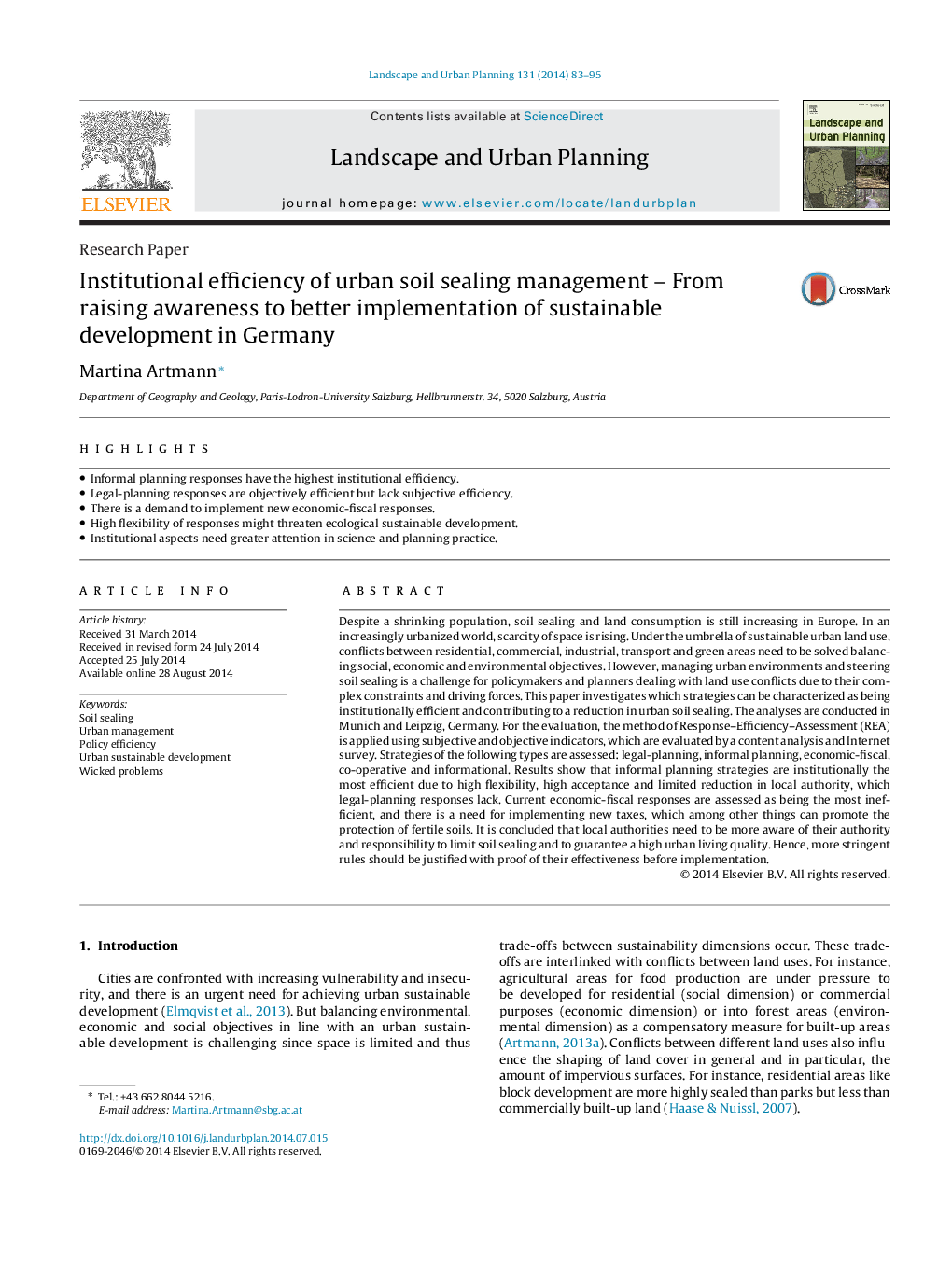| کد مقاله | کد نشریه | سال انتشار | مقاله انگلیسی | نسخه تمام متن |
|---|---|---|---|---|
| 1049139 | 1484627 | 2014 | 13 صفحه PDF | دانلود رایگان |
• Informal planning responses have the highest institutional efficiency.
• Legal-planning responses are objectively efficient but lack subjective efficiency.
• There is a demand to implement new economic-fiscal responses.
• High flexibility of responses might threaten ecological sustainable development.
• Institutional aspects need greater attention in science and planning practice.
Despite a shrinking population, soil sealing and land consumption is still increasing in Europe. In an increasingly urbanized world, scarcity of space is rising. Under the umbrella of sustainable urban land use, conflicts between residential, commercial, industrial, transport and green areas need to be solved balancing social, economic and environmental objectives. However, managing urban environments and steering soil sealing is a challenge for policymakers and planners dealing with land use conflicts due to their complex constraints and driving forces. This paper investigates which strategies can be characterized as being institutionally efficient and contributing to a reduction in urban soil sealing. The analyses are conducted in Munich and Leipzig, Germany. For the evaluation, the method of Response–Efficiency–Assessment (REA) is applied using subjective and objective indicators, which are evaluated by a content analysis and Internet survey. Strategies of the following types are assessed: legal-planning, informal planning, economic-fiscal, co-operative and informational. Results show that informal planning strategies are institutionally the most efficient due to high flexibility, high acceptance and limited reduction in local authority, which legal-planning responses lack. Current economic-fiscal responses are assessed as being the most inefficient, and there is a need for implementing new taxes, which among other things can promote the protection of fertile soils. It is concluded that local authorities need to be more aware of their authority and responsibility to limit soil sealing and to guarantee a high urban living quality. Hence, more stringent rules should be justified with proof of their effectiveness before implementation.
Journal: Landscape and Urban Planning - Volume 131, November 2014, Pages 83–95
